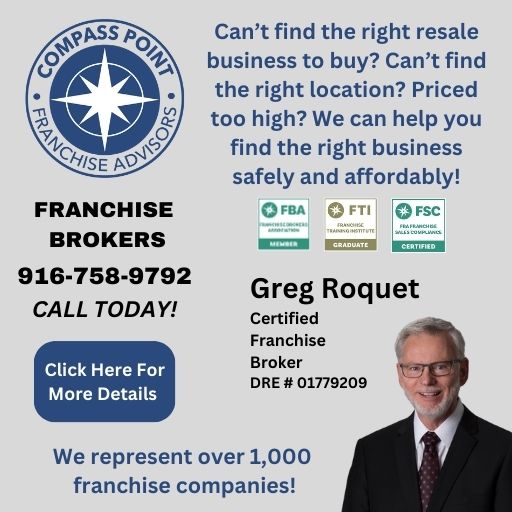
Ever wondered why business deals fail? Unfortunately, around half of all business-for-sale deals involving small to mid-sized companies fail. A number of factors can lead to unsuccessful deals, such as the seller’s or owner’s inability to retain accurate records, an unappealing lease at the company’s location, or even the owner’s lack of desire to close a sale. Although several of those factors have resulted in unsuccessful transactions, the seller listing their original asking price far too high or the parameters of the sale just not working out are the most frequent reasons for deal failure.
Business deals often fail because sellers set unrealistic, high asking prices that scare away buyers. Combined with poor documentation, rigid negotiations, and lack of preparation, these factors derail nearly half of all business-for-sale transactions. Proper valuation, flexibility, and readiness are key to closing deals successfully.
Unrealistic High Asking Prices: The Leading Deal Killer
When a business owners list small business for sale for a price that seems otherwise unreasonable to potential buyers, it ultimately scares off the majority of those buyers who were genuinely interested in buying the business.
Business owners who have invested a lot of time and money into their company want to get top dollar for their hard work, even if it means valuing their business where they believe future profits would have taken them, or in the ballpark of what their business was worth before recessions or downturns in the economy.
This type of overvalued business for sale often creates sale negotiation breakdowns, resulting in frustrated buyers and failed business sales.
Negotiation and Buyer Psychology
If a business owner has their business priced too high and begins negotiations with a potential buyer who is willing to buy the company for much less than the listed price, it is important to keep an open mind and work toward understanding why people aren’t willing to pay the full asking price for their business.
For buyers, encountering an unrealistic asking price can be discouraging and may cause them to abandon the process entirely. Sellers who remain rigid risk losing not just one, but multiple qualified prospects. Lack of seller flexibility and emotional ownership barriers often prevent deals from reaching a close.
The Importance of Proper Business Valuation
As a seller, you may have come to your asking price without having your business properly valued/appraised (such as utilizing a business valuation professional.
You may need to reevaluate your stance on your asking price (and deal structure) and seek professional assistance. This is critical since the first thirty to forty-five days of a business being on the market to sell is the most important time period to get things right.
Key factors for accurate business valuation include:
- Analyzing profit & loss statements and tax returns (at least three years).
- Reviewing a business comps database for real-time comparable sales.
- Considering succession planning, sale risks, and dependency on key employees.
- Evaluating management team gaps and customer concentration.
- Addressing valuation misconceptions and avoiding inflated projections.
The Role of Documentation and Due Diligence
As a potential business buyer, it is critical to be able to support your value of the business you are interested in purchasing with hard facts. Analyzing a profit and loss income statement and business tax returns from the previous three years is an excellent place to start and is among the numerous things that will play into the process of valuing the business.
But there are other documents and information that you’ll need to really determine what the small business is truly worth. Buyers often uncover due diligence failures, missing paperwork, or poor record-keeping in business sale issues that derail deals. Sellers must ensure documentation readiness early in the process.
Why Negotiation Flexibility Matters
After an offer is made, both parties must work together to understand where the other side is coming from and that everything is negotiable. If you aren’t willing to budge or negotiate, you’ll never get a deal done.
Both parties (sellers and buyers) should develop a rapport with one another to show good faith and support their reasoning for prices in a way that doesn’t scare the other party out of a deal. Neither party should become excitable or get offended by the other person’s offer/LOI/purchase agreement, but rather strive to make a deal that benefits both sides based on supporting documents and information.
Good-faith negotiation, deal structure flexibility, and credible documentation all contribute to deal success.
External and Emotional Factors That Cause Deals to Fail
While unrealistic asking prices are the leading reason why business deals fail, there are other contributors:
- Emotional Deal Blockers: Sellers may not be psychologically ready to exit, leading to delays or abandonment.
- External Deal Disruptors: Economic downturns, financing markets, or unforeseen global events can change valuations overnight.
- Buyer Fatigue in Sales Process: Long delays and miscommunication (mixed messages, lack of advisory support) wear buyers down.
- Legal/Tax Surprises: Unexpected liabilities, compliance issues, or tax concerns can trigger delays or collapse.
Acknowledging these factors can help both sides prepare for market timing and sale success.
In markets like California, New York, or Texas, business sale transactions are influenced by regional laws, tax structures, and economic conditions. For example, a California business broker may highlight stricter environmental compliance, while in Texas, financing accessibility plays a bigger role. Sellers should align their expectations with local realities to avoid failed business sale reasons.
No More Failed Deals: Proven Steps That Work
Understanding why business deals fail is only half the battle; the real opportunity lies in taking proactive steps to prevent them from collapsing.
Get a Professional Business Valuation
One of the most effective ways to prevent failed business sale reasons is to start with a realistic valuation. Hiring a valuation professional or working with a business broker ensures sellers avoid overvalued business-for-sale scenarios and address valuation misconceptions early. Instead of overvaluing your business, try to maximize your business value through the right strategies and approaches. Using a comps database of real-time comparable sales helps sellers set an asking price that attracts buyers rather than scares them away.
Prioritize Documentation Readiness
Documentation readiness is critical during the first 30–45 days of a sales process. Sellers should prepare:
- Profit & loss statements (at least three years)
- Business tax returns
- Contracts, leases, and compliance records
- Employee and customer agreements
This preparation minimizes due diligence failures, builds buyer trust, and avoids delays caused by missing paperwork in a sale.
3. Embrace Negotiation Flexibility
Rigid pricing or deal structure flexibility issues often lead to a sale negotiation breakdown. Sellers must approach offers with an open mind and avoid emotional deal blockers. Similarly, buyers should support their valuations with clear documentation and analysis. Developing rapport, showing good faith, and negotiating with patience prevent buyer fatigue and mixed messages.
4. Address Emotional and Organizational Readiness
Sellers should assess whether they are truly ready to exit, emotionally and practically. Lack of succession planning, key employee dependency, or management team gaps often derail deals late in the process. Preparing for a smooth transition reduces perceived risks for buyers.
5. Plan for External and Legal Factors
External deal disruptors such as financing challenges, economic downturns, or sudden tax liabilities can be mitigated with early planning. Engaging legal and tax advisors helps sellers identify unintended surprises before they become deal killers. Similarly, understanding regional variations (such as stricter compliance in California or financing dynamics in Texas) improves deal readiness.
Conclusion:
So, why business deals fail? The answer is rarely simple, but the most common culprit is unrealistic high asking prices, inflexible negotiation, and poor preparation. Sellers should focus on accurate valuations, documentation readiness, and emotional readiness to exit, while buyers should come prepared with data-driven offers and financing clarity.
When both parties collaborate in good faith, supported by professional advisors, the odds of closing a successful deal rise significantly.
FAQs:
Why do most business deals fail?
Most deals fail due to unrealistic asking prices, poor documentation, lack of negotiation flexibility, or external market forces.
How can sellers avoid failed business sale reasons?
By getting a professional valuation, preparing documentation, setting realistic expectations, and being emotionally ready to exit.
What role does due diligence play in deal success?
Due diligence ensures buyers validate profits, assets, and risks. Missing paperwork or financial discrepancies often cause deals to collapse.
How do external factors impact why business deals fail?
Macroeconomic shifts, financing challenges, or tax surprises can affect buyer confidence and lead to delays or cancellations.
Why is the first 45 days so critical in selling a business?
The first 30–45 days are the “golden window” for attracting serious buyers. If pricing, valuation, and documentation aren’t ready, the listing risks losing momentum.
Related Posts


By Christina Lazuric, CBI, CBB
you might also like
Valuation
By Christina Lazuric, CBI, CBB
Valuation
By Tim Cunha, JD
Valuation
By Peter Siegel, MBA





























